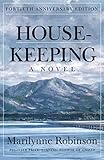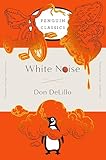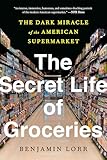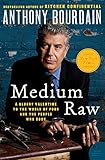 Fallacy though it may be to imagine the narrator of a verse as equivalent with the poet, it’s impossible not to imagine the words of Robert Frost read in that clipped Yankee-via-San-Francisco accent of his, to intuit the blistering cold of a New Hampshire morning or the blinding whiteness of the snow-covered Franconia Range, the damp exertion of sweat under a flannel collar and muddy boots trudging across yellow and brown leaves slick with early morning ice. Frost is forever a poet of loose coffee grounds dumped into boiling water and intricate blue and red quilts, of wooden spoons hanging from hooks next to gas stoves and of curved glass hurricane lamps, of creaking wooden floorboards and doors swollen with summer’s humidity. Visiting his white clapboard, gable-peeked farmstead in Derry, New Hampshire, and perambulating in the golden woods of sugar maple and red oak and it’s hard not to romanticize the old man, eyeing him along the rough granite stone wall that he mended every spring, the famous structure whereby “Good fences make good neighbors,” which he wrote about in his 1914 collection North of Boston. The poet was always fixing things—mending, building, working. Our greatest singer of chores.
Fallacy though it may be to imagine the narrator of a verse as equivalent with the poet, it’s impossible not to imagine the words of Robert Frost read in that clipped Yankee-via-San-Francisco accent of his, to intuit the blistering cold of a New Hampshire morning or the blinding whiteness of the snow-covered Franconia Range, the damp exertion of sweat under a flannel collar and muddy boots trudging across yellow and brown leaves slick with early morning ice. Frost is forever a poet of loose coffee grounds dumped into boiling water and intricate blue and red quilts, of wooden spoons hanging from hooks next to gas stoves and of curved glass hurricane lamps, of creaking wooden floorboards and doors swollen with summer’s humidity. Visiting his white clapboard, gable-peeked farmstead in Derry, New Hampshire, and perambulating in the golden woods of sugar maple and red oak and it’s hard not to romanticize the old man, eyeing him along the rough granite stone wall that he mended every spring, the famous structure whereby “Good fences make good neighbors,” which he wrote about in his 1914 collection North of Boston. The poet was always fixing things—mending, building, working. Our greatest singer of chores.
He’s at it again in his poem “Two Tramps in Mud Time,” which he wrote around 1934, five years into the Great Depression. In a cold New England field our narrator is chopping wood when he is approached by two hungry vagrants looking for paid labor. There’s something vaguely ominous about the unemployed lumberjacks, as “one of them put me off my aim/By hailing cheerily ‘Hit them hard!'” I envision the startled narrator wobbling a bit, axe stuck in aborted oak atop a chopping block. “I knew pretty well what he had in mind:/he wanted to take my job for pay.” What eventually follows is a digressive, ethical rumination, one that seems entirely foreign at a time when the gig economy has become ubiquitous. “The time when most I loved my task/The two must make me love it more/By coming with what they came to ask.” Propriety and dignity is such that the tramps won’t accept mere charity, but Frost’s enjoyment of his housework prevents him from parting with the chopping of timber. “I had no right to play/With what was another man’s work for gain./My right might be love but theirs was need,” says the narrator. Ambiguous as to what he does, if the desperate men convince him of the necessity of their task, as indeed Frost knows that their continued presence will eventually move him to turn over the axe. Yet in the chore, here amongst the warm sun and the chill wind, his “object in living is to unite/My avocation and my vocation… where love and need are one.” Frost really liked housework.
 My own inclinations regarding chores are decidedly less romantic; well into my twenties, my existence was that of the stereotypical heterosexual bachelor. Living out of hampers, eating over sinks, kicking discarded magazines under the sofa. When I was an undergraduate, and even more dissolute in my habitations, my dorm room was piled with old newspapers, so that any enterprising geologist could excavate backwards through strata of the Pittsburgh Post-Gazette and discover George W. Bush’s reelection, the invasion of Iraq, Colin Powel’s U.N. testimony. My attitude matured with experience, or at least I got sick of living in filth—and I got married of course—so much so that I even developed an occasional affection for chores, their straightforward, contemplative, and measurable necessity. To clean cups, mugs, glasses, and dishes; to soap up a bowl or scrub crusted sauce from a fork, loading up the machine and placing that little alien detergent pod into its compartment; toggling between stream and spray to clean the sink of bread crusts and globs of yogurt. Lithuanian-American poet Al Zolynas describes as much in “The Zen of Housework” from his collection The New Physics, how his rubber gloved hand filled up a wine glass with water and soap, “thousands of droplets/of steam—each a tiny spectrum—rising/from my goblet,” what he designates the “grey sacrament of the mundane!”
My own inclinations regarding chores are decidedly less romantic; well into my twenties, my existence was that of the stereotypical heterosexual bachelor. Living out of hampers, eating over sinks, kicking discarded magazines under the sofa. When I was an undergraduate, and even more dissolute in my habitations, my dorm room was piled with old newspapers, so that any enterprising geologist could excavate backwards through strata of the Pittsburgh Post-Gazette and discover George W. Bush’s reelection, the invasion of Iraq, Colin Powel’s U.N. testimony. My attitude matured with experience, or at least I got sick of living in filth—and I got married of course—so much so that I even developed an occasional affection for chores, their straightforward, contemplative, and measurable necessity. To clean cups, mugs, glasses, and dishes; to soap up a bowl or scrub crusted sauce from a fork, loading up the machine and placing that little alien detergent pod into its compartment; toggling between stream and spray to clean the sink of bread crusts and globs of yogurt. Lithuanian-American poet Al Zolynas describes as much in “The Zen of Housework” from his collection The New Physics, how his rubber gloved hand filled up a wine glass with water and soap, “thousands of droplets/of steam—each a tiny spectrum—rising/from my goblet,” what he designates the “grey sacrament of the mundane!”
Easy to valorize if nobody is making you do it; Frost’s hobby was apparently chopping wood, and most of us do our dishes and laundry because the alternative is disgusting, but there is a risk to turning the vacuum into meditation tool. The narcissistic self-regard of the husband proud of having moved a coffee cup to the sink. Without some self-awareness you might sound like the Berkely philosopher Paul Feyerabend, who told an interviewer that he most enjoyed doing housework, seeing it as an act of devotion to his wife. After he died, his wife said that Feyerabend had never done any chores.

 Notice the differing words we use to describe vacuuming or cooking—from meditation to hobby to housework to chore to domestic labor—all of which depends on who is doing it for whom and what’s compelling them to do it. By contrast to Zolynas’ lyric, former Poet Laureate Natasha Tretheway writes in a poem from her collection Domestic Work about a maid for whom “All week she’s cleaned/someone else’s house,/stared down her own face/in the shine of copper—/bottomed pots, polished/wood, toilets she’d pull/the lid to.” Historically, housework has been synonymous with women’s work; whether poorly renumerated or not paid at all, the scrubbing, dusting, and washing are marked as feminine. When Frost was outside playing lumberjack, what was Elinor Frost was doing? She was inside picking dried johnnie cake batter off of the iron stove top, she was washing those musty red flannels with their stink of the woods, she was mixing soap and water in a dented steel bucket and letting the suds flow over a bathroom floor. Betty Friedan describes the score in The Feminine Mystique: “As she made the beds, shopped for groceries, matched slipcover material… she was afraid to ask even of herself the silent question—’Is this all?'”
Notice the differing words we use to describe vacuuming or cooking—from meditation to hobby to housework to chore to domestic labor—all of which depends on who is doing it for whom and what’s compelling them to do it. By contrast to Zolynas’ lyric, former Poet Laureate Natasha Tretheway writes in a poem from her collection Domestic Work about a maid for whom “All week she’s cleaned/someone else’s house,/stared down her own face/in the shine of copper—/bottomed pots, polished/wood, toilets she’d pull/the lid to.” Historically, housework has been synonymous with women’s work; whether poorly renumerated or not paid at all, the scrubbing, dusting, and washing are marked as feminine. When Frost was outside playing lumberjack, what was Elinor Frost was doing? She was inside picking dried johnnie cake batter off of the iron stove top, she was washing those musty red flannels with their stink of the woods, she was mixing soap and water in a dented steel bucket and letting the suds flow over a bathroom floor. Betty Friedan describes the score in The Feminine Mystique: “As she made the beds, shopped for groceries, matched slipcover material… she was afraid to ask even of herself the silent question—’Is this all?'”
Ironically, as the second wave feminism of the 1960s and 70s smashed through (some) boundaries regarding women’s role in the workplace, the onus of domestic labor didn’t shift more equitably to male partners. According to a Gallup poll from 2020, even though women are now more than half the workforce, and on average contribute more to their family’s finances (even while a gender wage gap endures), they still are responsible for laundry in 58% of households and cooking in 51%—not to mention childcare. Important since housework, it must be said, is also often hard. Despite those technological miracles of capitalist utopia—the washing machine, the dishwasher, the vacuum cleaner—chores are not just time-consuming and monotonous, but arduous. There was a reason why activists started the International Wages for Housework Campaign in 1972, a call for a universal basic income that acknowledged that women’s domestic labor was indeed labor. Writing about the history of women’s labor in the nineteenth-century home, Susan Strasser explains in Never Done: A History of Housework how women’s “contributions could not have been more central. The household was… a center of production, where women spun, wove, and sewed raw fibers into apparel, and converted unprocessed plant and animal matter into meals.” Chores can be meditative, but to forget that they’re also instrumental is also to forget the people who actually do them.
A question Frost implicitly grapples with: what is the difference between the work we do for ourselves and the work we do for others? Trethewey writes how “Sunday mornings are hers,” a still busy day where “church clothes [are] starched” and floors are washed with “buckets of water. Octagon soap.” But the language that describes these chores is so different, joyful even. Rhythmic. There’s a “record spinning/on the console, the whole house/dancing” while she cooks on the stove, “neck bones/bumping in the pot” and “a choir/of clothes clapping on the line.” This maid who still has to clean on her day off is at least cleaning for herself, and not unlike the narrator in Zolynas’s poem, she’s got her moments of domestic transcendence as she “beats time on the rugs,/blows dust from the broom/like dandelion spores, each one/a wish.” I don’t know if she loves this work, but there is a similarity between Trethewey’s character and Frost’s narrator, that distinction between working for pay and working for oneself. What defines chores is that they have to be done. Domestic work is never done, a constant war of attrition against entropy. But also, in a circumscribed way it can be finished perfectly: A writer can always add another word or a painter another brush stroke, but once a dish is lemony clean it can be as fresh as a new mind.
 If there is a danger in forgetting that the chore is work, there is also a loss if we don’t remember that Frost and Zolynas and Trethewey have a point. Housework can be a practice, a ritual, a sacrament—the very art of life. Chores can even be countercultural, in a way, as necessary work for an adequate life, rather than for increasing the profits of an invisible entity housed in that aforementioned glass and steel monolith. Still, it’s hard to interpret chores as innately subversive, especially if we rely on Comet and Arm & Hammer, Palm Olive and Tide, Kenmore and Dyson, Frigidaire and General Electric. Not long after the 2008 economic collapse, and perhaps as part of the general zeitgeist where anarchic self-sufficiency manifested itself in the heady utopianism of Occupy, there was a softer rise in enthusiasm toward ways of doing chores that didn’t put money in the pockets of executives at Whirlpool or Proctor & Gamble. Suddenly some hipsters became homesteaders, hammering espresso machines into plowshares. Sticky mason jars filled with pickled tomatoes and acerbic asparagus, frosted growlers of yeasty homemade ale, home ground coffee, an enthusiasm for strenuous carpentry among women and delicate knitting among men. During the high-water mark of the late capitalist Anthropocene, it’s “no wonder some began reaching back even further, to simpler times they’d never known firsthand,” writes Kurt B. Reighley in United States of Americana: Backyard Chickens, Burlesque Beauties, and Handmade Bitters—A Field Guide to the New American Roots Movement. He explains that “these modern pioneers are latching on to handcrafts, well-made shoes… They’ve stopped paying exorbitant gourmet prices for sun-dried or roasted tomatoes, and started learning to can their own, fresh from a local, sustainable source, maybe their own yard or a nearby farmer’s market.”
If there is a danger in forgetting that the chore is work, there is also a loss if we don’t remember that Frost and Zolynas and Trethewey have a point. Housework can be a practice, a ritual, a sacrament—the very art of life. Chores can even be countercultural, in a way, as necessary work for an adequate life, rather than for increasing the profits of an invisible entity housed in that aforementioned glass and steel monolith. Still, it’s hard to interpret chores as innately subversive, especially if we rely on Comet and Arm & Hammer, Palm Olive and Tide, Kenmore and Dyson, Frigidaire and General Electric. Not long after the 2008 economic collapse, and perhaps as part of the general zeitgeist where anarchic self-sufficiency manifested itself in the heady utopianism of Occupy, there was a softer rise in enthusiasm toward ways of doing chores that didn’t put money in the pockets of executives at Whirlpool or Proctor & Gamble. Suddenly some hipsters became homesteaders, hammering espresso machines into plowshares. Sticky mason jars filled with pickled tomatoes and acerbic asparagus, frosted growlers of yeasty homemade ale, home ground coffee, an enthusiasm for strenuous carpentry among women and delicate knitting among men. During the high-water mark of the late capitalist Anthropocene, it’s “no wonder some began reaching back even further, to simpler times they’d never known firsthand,” writes Kurt B. Reighley in United States of Americana: Backyard Chickens, Burlesque Beauties, and Handmade Bitters—A Field Guide to the New American Roots Movement. He explains that “these modern pioneers are latching on to handcrafts, well-made shoes… They’ve stopped paying exorbitant gourmet prices for sun-dried or roasted tomatoes, and started learning to can their own, fresh from a local, sustainable source, maybe their own yard or a nearby farmer’s market.”

 If anything, the pandemic exacerbated these sentimental desires; or, let a thousand sourdough starters rise. If the American sense of nostalgic chore work harkened to certain (often pernicious) myths of the frontier—rustic cabins and gas stoves, cracked leather and rusted machinery—than across the Atlantic there has been a retreat into a sort of cozy, fantasy Cotswold: warm ale by a hot fire in the cold pub kind of domesticity. A leader in that trend is Tom Hodgkinson, editor of The Idler and advocate for a Chestertonian anarcho-medievalism. In Hodgkinson’s view, corporate capitalism has severed our connection to the numinous, and in the quotidian repetition of chores we redefine ourselves. As a credo, Hodgkinson writes in Brave Old World: A Month-by-Month Guide to Husbandry, or the Fine Art of Looking After Yourself that the “most important but generally the most neglected of everyday living are simply these: philosophy, husbandry, and merriment. Philosophy is the search for truth… Husbandry is the art of providing for one’s family, and merriment is the important skill of enjoying yourself: feasting, dancing, joking and singing.” In Brave Old World, Hodgkinson gives detailed and witty instructions on everything from wood-chopping and bread-baking to pig-slaughtering and field-planting. Archeologist Alexander Langlands promotes a similar ideology in his book Craeft: An Inquiry Into the Origins and True Meaning of Traditional Crafts, writing that in our alienated age there is an attraction towards “making… and making with a perceived authenticity: by hand, with love; from raw, natural materials; to a desired standard.” I’ll admit, the aesthetic appeals to me; the actual labor doesn’t.
If anything, the pandemic exacerbated these sentimental desires; or, let a thousand sourdough starters rise. If the American sense of nostalgic chore work harkened to certain (often pernicious) myths of the frontier—rustic cabins and gas stoves, cracked leather and rusted machinery—than across the Atlantic there has been a retreat into a sort of cozy, fantasy Cotswold: warm ale by a hot fire in the cold pub kind of domesticity. A leader in that trend is Tom Hodgkinson, editor of The Idler and advocate for a Chestertonian anarcho-medievalism. In Hodgkinson’s view, corporate capitalism has severed our connection to the numinous, and in the quotidian repetition of chores we redefine ourselves. As a credo, Hodgkinson writes in Brave Old World: A Month-by-Month Guide to Husbandry, or the Fine Art of Looking After Yourself that the “most important but generally the most neglected of everyday living are simply these: philosophy, husbandry, and merriment. Philosophy is the search for truth… Husbandry is the art of providing for one’s family, and merriment is the important skill of enjoying yourself: feasting, dancing, joking and singing.” In Brave Old World, Hodgkinson gives detailed and witty instructions on everything from wood-chopping and bread-baking to pig-slaughtering and field-planting. Archeologist Alexander Langlands promotes a similar ideology in his book Craeft: An Inquiry Into the Origins and True Meaning of Traditional Crafts, writing that in our alienated age there is an attraction towards “making… and making with a perceived authenticity: by hand, with love; from raw, natural materials; to a desired standard.” I’ll admit, the aesthetic appeals to me; the actual labor doesn’t.
 Considering how much time we spend in grocery stores, or vacuuming, or doing laundry, or taking out the trash, it’s often occluded in our literature, albeit we know that Jeeves dusted and somebody was starching Mr. Darcey’s collars. “One can travel quite deep into the literary archive without finding a single reference to the activities that keep households running, and keep those within them alive,” writes Lisa Locascio in Lit Hub, and yet she argues that the “tasks grouped under the humble name housework are not only necessary, but poetic, provocative, and complex.” Housework exists at the nexus of many things—race and gender, the personal and the public, the routine and the transcendent. Perhaps it’s her Midwestern Calvinist practicality, but Marilynne Robinson endows the everyday with charmed straightforwardness, elevating the chore to its rightful place, nowhere as much as in her appropriately named Housekeeping, whereby she imagines having “swept the whole floor of heaven,” the eschatological work of “reclaiming… fallen buttons and misplaced spectacles,” whereby chores themselves are the work of reparation and repair. In cleaning, in organizing, in making that which is disordered ordered, there is a sense that “everything must finally be made comprehensible,” as Robinson writes, what “are all these fragments for, if not to be knit up finally?,” the verb itself a conspicuous conflation of feminine housework with fixing the universe.
Considering how much time we spend in grocery stores, or vacuuming, or doing laundry, or taking out the trash, it’s often occluded in our literature, albeit we know that Jeeves dusted and somebody was starching Mr. Darcey’s collars. “One can travel quite deep into the literary archive without finding a single reference to the activities that keep households running, and keep those within them alive,” writes Lisa Locascio in Lit Hub, and yet she argues that the “tasks grouped under the humble name housework are not only necessary, but poetic, provocative, and complex.” Housework exists at the nexus of many things—race and gender, the personal and the public, the routine and the transcendent. Perhaps it’s her Midwestern Calvinist practicality, but Marilynne Robinson endows the everyday with charmed straightforwardness, elevating the chore to its rightful place, nowhere as much as in her appropriately named Housekeeping, whereby she imagines having “swept the whole floor of heaven,” the eschatological work of “reclaiming… fallen buttons and misplaced spectacles,” whereby chores themselves are the work of reparation and repair. In cleaning, in organizing, in making that which is disordered ordered, there is a sense that “everything must finally be made comprehensible,” as Robinson writes, what “are all these fragments for, if not to be knit up finally?,” the verb itself a conspicuous conflation of feminine housework with fixing the universe.
 Chores are the undercurrent of literature, because housework is so much like writing, particularly in editing and revision. (Besides, chores are either the thing done to avoid writing, or what doesn’t happen when writing commences, or what the author expects someone else to do as they write.) To be done well, both writing and housework must be done every day, lest the dust and cobwebs overcrowd your house and your manuscript, the dishes piling up in the sink like uncleaned sentences, trash overflowing in bins as if over bloated paragraphs. Or even worse, to leave a wall unpainted like a page left blank. And both, when done contemplatively, can focus the mind. Chores can be monotonous, back-breaking, thankless, but they can also be meditative, even ecstatic. That writing shares these aspects with housework is important. So too is the ritualized aspect of both endeavors, at least if there is to be any success in either. Read any of the dozens of dialogues that constitute the “Writers at Work” series collected across The Paris Review Interviews, a celebrated feature conducted largely by George Plimpton for nearly half-a-century, in which authors elaborated on how they organized their desks, or what brand of typewriter ribbon they used, or when during the day they most often labored. Worth more than a whole shelf of post-structuralist literary criticism, the “Writers at Work” series proves that theory and praxis are identical. Everything depends on where you work, what tools you use, and your schedule. It’s no different from a sink full of dishes. Writing requires the same dutiful regularity, for a person “must sit down and get the words on paper, and against great odds,” says E.B. White. “This takes stamina and resolution.” Raymond Carver also emphasizes regularity, saying “When I’m writing, I write every day,” in the same way that if a household lets receipts gather on the table and circulars in the mailbox, the situation becomes unmanageable. John Ashbery countenances against falling into bad habits, bemoaning the sloppiness that ensues if one happens to “stay up too late and sleep in too long” while Gabriel García Márquez concurs that any writing requires “extraordinary discipline.” Just as the goal of housework is parsimony and economy, Louis Erdrich recommends overwriting the ending of a piece and then going back “to decide where the last line hits.” Perhaps most crucial, and that which separates the happy writer from the tortured, the joyful gardener from the merely muddy, the zestful carpenter from one who keeps hitting his thumb with a hammer, is that the “most important thing is to be excited about what you are doing,” as James Dickey says. All of this advice is prosaic. So are instructions on how to clean a room.
Chores are the undercurrent of literature, because housework is so much like writing, particularly in editing and revision. (Besides, chores are either the thing done to avoid writing, or what doesn’t happen when writing commences, or what the author expects someone else to do as they write.) To be done well, both writing and housework must be done every day, lest the dust and cobwebs overcrowd your house and your manuscript, the dishes piling up in the sink like uncleaned sentences, trash overflowing in bins as if over bloated paragraphs. Or even worse, to leave a wall unpainted like a page left blank. And both, when done contemplatively, can focus the mind. Chores can be monotonous, back-breaking, thankless, but they can also be meditative, even ecstatic. That writing shares these aspects with housework is important. So too is the ritualized aspect of both endeavors, at least if there is to be any success in either. Read any of the dozens of dialogues that constitute the “Writers at Work” series collected across The Paris Review Interviews, a celebrated feature conducted largely by George Plimpton for nearly half-a-century, in which authors elaborated on how they organized their desks, or what brand of typewriter ribbon they used, or when during the day they most often labored. Worth more than a whole shelf of post-structuralist literary criticism, the “Writers at Work” series proves that theory and praxis are identical. Everything depends on where you work, what tools you use, and your schedule. It’s no different from a sink full of dishes. Writing requires the same dutiful regularity, for a person “must sit down and get the words on paper, and against great odds,” says E.B. White. “This takes stamina and resolution.” Raymond Carver also emphasizes regularity, saying “When I’m writing, I write every day,” in the same way that if a household lets receipts gather on the table and circulars in the mailbox, the situation becomes unmanageable. John Ashbery countenances against falling into bad habits, bemoaning the sloppiness that ensues if one happens to “stay up too late and sleep in too long” while Gabriel García Márquez concurs that any writing requires “extraordinary discipline.” Just as the goal of housework is parsimony and economy, Louis Erdrich recommends overwriting the ending of a piece and then going back “to decide where the last line hits.” Perhaps most crucial, and that which separates the happy writer from the tortured, the joyful gardener from the merely muddy, the zestful carpenter from one who keeps hitting his thumb with a hammer, is that the “most important thing is to be excited about what you are doing,” as James Dickey says. All of this advice is prosaic. So are instructions on how to clean a room.

 If writing gestures toward an abstract world beyond, we must not forget that it’s always been a grubby job as well, of ink trapped under ragged cuticles and of aching elbows and wrists. Because we think of domestic work in less grand terms, the physicality stands out more, and yet chores can gesture to a certain beyond as well. Robert Pirsig‘s countercultural classic Zen and the Art of Motorcycle Maintenance makes a case for the mystical possibilities of chores. Pirsig writes that people associate engine metal with “given shapes—pipes, rods, girders, tools, parts… as primarily physical,” but for those who actually fix such machines, the “motorcycle is primarily a mental phenomenon.” Writing is more physical than is supposed and the chore more mental, the two meeting in the middle. Another similarity, as Pirsig describes it, is that whether fixing a bike or writing an essay the “solutions all are simple—after you have arrived at them. ” Machines are extensions of our mind, can even alter and redefine the mind. Once you’ve realized that writing is a physical activity, defined by its own exertions, its own discomforts, its own ennobled suffering, and not just something ephemeral in the head, then you’re thankful for the technologies that make it possible—the pen, the typewriter, the word processor. Domestic work and technology have always been connected like hand in rubber glove. Even something as under-theorized as Carol Gantz‘s subject in The Vacuum Cleaner: A History is rightly understood as “one of the ‘machine age’ marvels of the early twentieth century,” to cleaning what the personal computer is to writing.
If writing gestures toward an abstract world beyond, we must not forget that it’s always been a grubby job as well, of ink trapped under ragged cuticles and of aching elbows and wrists. Because we think of domestic work in less grand terms, the physicality stands out more, and yet chores can gesture to a certain beyond as well. Robert Pirsig‘s countercultural classic Zen and the Art of Motorcycle Maintenance makes a case for the mystical possibilities of chores. Pirsig writes that people associate engine metal with “given shapes—pipes, rods, girders, tools, parts… as primarily physical,” but for those who actually fix such machines, the “motorcycle is primarily a mental phenomenon.” Writing is more physical than is supposed and the chore more mental, the two meeting in the middle. Another similarity, as Pirsig describes it, is that whether fixing a bike or writing an essay the “solutions all are simple—after you have arrived at them. ” Machines are extensions of our mind, can even alter and redefine the mind. Once you’ve realized that writing is a physical activity, defined by its own exertions, its own discomforts, its own ennobled suffering, and not just something ephemeral in the head, then you’re thankful for the technologies that make it possible—the pen, the typewriter, the word processor. Domestic work and technology have always been connected like hand in rubber glove. Even something as under-theorized as Carol Gantz‘s subject in The Vacuum Cleaner: A History is rightly understood as “one of the ‘machine age’ marvels of the early twentieth century,” to cleaning what the personal computer is to writing.
Vacuuming, admittedly, doesn’t have the same romance, but Raymond Carver made something brilliant out of that mundane ritual in his short story “Put Yourself in My Shoes,” the genesis of which was a single sentence: “He was running the vacuum cleaner when the telephone rang.” The line appeared as if a mantra in the author’s head one day, later unspooling like a cleaner going over a carpet in rigid, tight turns. Other types of domestic labor have always drawn the attention of writers, been endowed with significance and romanticized. Gardening is celebrated as an artful and (literally) regenerative duty. A sense that in charting tomato vines’ progress, basil plants becoming lushly green with spring showers, craggy oregano growing green-brown against the autumn sun, is a bit like seeing a manuscript slowly take form. “If you have a garden in your library,” Cicero famously wrote in a letter from 46 B.C.E, “everything will be complete.”


 Gardening speaks a vernacular both primal and cozy, and as such it draws writerly attention more than toilet scrubbing does—we read The Secret Garden by Frances Hodgson Burnett and not The Secret Outhouse, after all. A garden is a mysterious space, intertwining vines clinging to a red-brick wall, dirt under fingernails and engorged vegetables, a sense of freshness and safety but also of sexual reproduction and perhaps the erotically illicit, as in that original paradise from which we were all expelled. In The Art of Love, Ovid sings of how “mid soft green there springs a sacred font”; Andrew Marvell avers that nothing is “as am’rous as this lovely green” in “Upon Appleton House.” For those who truly love gardening, the word “chore” is an obscenity for an activity nearer to vocation. Jamaica Kincaid movingly writes in My Garden that her own attempts shall never match her idealized vision, but “for me [that] is the joy of it; certain things can never be realized and so all the more reason to attempt them,” but my own Zen is significantly less chill. I’m merely an enthusiast for sitting in gardens—porches, stoops, or patios are also great—but I’ve never been a partisan of the dirt like those who possess a true green thumb. When it comes to produce, my housework extends rather to going to the grocery store which processes all of those goods of the garden (or farm rather), an enchanted place in my mind that as long as I go when it’s late and empty calms me as much as if I were a Buddhist monk circling a prayer wheel.
Gardening speaks a vernacular both primal and cozy, and as such it draws writerly attention more than toilet scrubbing does—we read The Secret Garden by Frances Hodgson Burnett and not The Secret Outhouse, after all. A garden is a mysterious space, intertwining vines clinging to a red-brick wall, dirt under fingernails and engorged vegetables, a sense of freshness and safety but also of sexual reproduction and perhaps the erotically illicit, as in that original paradise from which we were all expelled. In The Art of Love, Ovid sings of how “mid soft green there springs a sacred font”; Andrew Marvell avers that nothing is “as am’rous as this lovely green” in “Upon Appleton House.” For those who truly love gardening, the word “chore” is an obscenity for an activity nearer to vocation. Jamaica Kincaid movingly writes in My Garden that her own attempts shall never match her idealized vision, but “for me [that] is the joy of it; certain things can never be realized and so all the more reason to attempt them,” but my own Zen is significantly less chill. I’m merely an enthusiast for sitting in gardens—porches, stoops, or patios are also great—but I’ve never been a partisan of the dirt like those who possess a true green thumb. When it comes to produce, my housework extends rather to going to the grocery store which processes all of those goods of the garden (or farm rather), an enchanted place in my mind that as long as I go when it’s late and empty calms me as much as if I were a Buddhist monk circling a prayer wheel.

 “This place recharges us spiritually, it prepares us, it’s a gate-way,” Don DeLillo writes of the supermarket in White Noise, and underneath the luminescent hum of the lights in a midnight Giant Eagle I concur; the place where with “hungry fatigue, and shopping for images” Allen Ginsberg had ecstatic visions of Walt Whitman “poking among the meats” and Federico García Lorca by the watermelons, of “peaches and what penumbras… Wives in the avocados, babies in the tomatoes!” Vegetables from a garden are so odd-shaped and dirty; give me rather the pyramid of oranges whose spherical perfection is marred only by the little nipple on top, of gleaming Macintoshes and Granny Smiths, of jumbled mountains of phallic bananas and crisp heads of lettuce, not to mention that shrink-wrapped steak and chicken breasts divorced from any sense that they were cut from a once fleshy creature. Not to speak of the rows and rows of pre-fabricated chemical American goodness, Oreos and Swedish Fish, Kit Kats and Cape Cod potato chips. Benjamin Lorr provides a bit of perspective in The Secret Life of Groceries: The Dark Miracle of the American Supermarket, explaining that the “fresh apple you bite into has typically been sitting in dormancy for close to a year. Red cherries, that epitome of summer freshness, might have been stuck stabilized for two and half months. Bananas, avocados, tomatoes, and limes land somewhere in between.” Capitalism’s illusion of choice is the same as the illusion of freedom. I don’t normally care, as long as it tastes good.
“This place recharges us spiritually, it prepares us, it’s a gate-way,” Don DeLillo writes of the supermarket in White Noise, and underneath the luminescent hum of the lights in a midnight Giant Eagle I concur; the place where with “hungry fatigue, and shopping for images” Allen Ginsberg had ecstatic visions of Walt Whitman “poking among the meats” and Federico García Lorca by the watermelons, of “peaches and what penumbras… Wives in the avocados, babies in the tomatoes!” Vegetables from a garden are so odd-shaped and dirty; give me rather the pyramid of oranges whose spherical perfection is marred only by the little nipple on top, of gleaming Macintoshes and Granny Smiths, of jumbled mountains of phallic bananas and crisp heads of lettuce, not to mention that shrink-wrapped steak and chicken breasts divorced from any sense that they were cut from a once fleshy creature. Not to speak of the rows and rows of pre-fabricated chemical American goodness, Oreos and Swedish Fish, Kit Kats and Cape Cod potato chips. Benjamin Lorr provides a bit of perspective in The Secret Life of Groceries: The Dark Miracle of the American Supermarket, explaining that the “fresh apple you bite into has typically been sitting in dormancy for close to a year. Red cherries, that epitome of summer freshness, might have been stuck stabilized for two and half months. Bananas, avocados, tomatoes, and limes land somewhere in between.” Capitalism’s illusion of choice is the same as the illusion of freedom. I don’t normally care, as long as it tastes good.
 Preparing food is how I express love. “I do think the idea that basic cooking skills are a virtue, that the ability to feed yourself and a few others with proficiency should be taught to every young man and woman as a fundamental skill,” writes Anthony Bourdain in Medium Raw. “[It] should become as vital to growing up as learning to wipe one’s own ass.” Writers, as you might know, always exist in a state of heightened, vibrating anxiety, hyper-attuned to observation and analysis, forever shifting words and sentences in our minds. Such a state is only alleviated by writing itself, or somehow turning your mind off, which is no easy thing. Cooking is the great mind-emptier, not because you can do it without thinking, but rather the opposite—you must be fully and completely emersed in feeling measurements and sensing temperature, of timing with your internal clock and constantly examining and tasting, of throwing spaghetti at the wall to see if it sticks. When preparing food, one immerses oneself into the flux, into the flow, and time itself becomes hyper focused. During the earliest days of the pandemic, not long after our son was born, I invented Pasta alla Campeggio, a dish named after the Cardinal who acted as Pope Clement VII’s legate to the court of Henry VIII. I should explain that this meal only has to do with Campeggio because we were rewatching the sublime ham of The Tudors during this period, and I enjoy the mixture of guttural consonants and soaring vowels in the Cardinal’s name, a word as pleasurable on the mouth as I hope that the food I’m preparing will be. I thought naming the food something that pretentious was funny.
Preparing food is how I express love. “I do think the idea that basic cooking skills are a virtue, that the ability to feed yourself and a few others with proficiency should be taught to every young man and woman as a fundamental skill,” writes Anthony Bourdain in Medium Raw. “[It] should become as vital to growing up as learning to wipe one’s own ass.” Writers, as you might know, always exist in a state of heightened, vibrating anxiety, hyper-attuned to observation and analysis, forever shifting words and sentences in our minds. Such a state is only alleviated by writing itself, or somehow turning your mind off, which is no easy thing. Cooking is the great mind-emptier, not because you can do it without thinking, but rather the opposite—you must be fully and completely emersed in feeling measurements and sensing temperature, of timing with your internal clock and constantly examining and tasting, of throwing spaghetti at the wall to see if it sticks. When preparing food, one immerses oneself into the flux, into the flow, and time itself becomes hyper focused. During the earliest days of the pandemic, not long after our son was born, I invented Pasta alla Campeggio, a dish named after the Cardinal who acted as Pope Clement VII’s legate to the court of Henry VIII. I should explain that this meal only has to do with Campeggio because we were rewatching the sublime ham of The Tudors during this period, and I enjoy the mixture of guttural consonants and soaring vowels in the Cardinal’s name, a word as pleasurable on the mouth as I hope that the food I’m preparing will be. I thought naming the food something that pretentious was funny.
Pay attention—a recipe. For Campeggio, I normally use a dry Italian pasta, preferably De Cecco brand, but Barilla is fine. Always a medium width spaghetti, anything thin and all the stuff you’re using to make the sauce will weigh it down, anything too thick and the gravy doesn’t emulsify over it in the way that you want. When boiling the water for the pasta, make sure that it’s as salty as the Aegean, and for reasons unclear to me I always add a liberal pour of olive oil. While the spaghetti is being prepared, I use a large circular skillet to make the sauce. By caveat, no measurements are offered; everything is done by intuition. First, heat up thinly sliced shallots from two bulbs and a heaping pile of already diced garlic, but be careful that nothing browns too much. Then, pour in enough extra virgin olive oil so that it coats the entire surface of the skillet, though not so much that you end up with a greasy mess. Everything is kept on lowish heat when you add about a quarter pound of very thinly sliced Jamon de Iberico (or prosciutto, though the Spanish ham is smokier), allowing it to curl slightly under the heat like the pages of a book being burnt, and then cool everything down slightly by dumping in around two dozen halved cherry tomatoes. Finally, right before adding the spaghetti, the equivalent of half-a-wheel of camembert (though brie also works) is distributed throughout the skillet in thinly cut strips, while the pasta (now drained of water of course) is mixed directly into the resulting sauce, rapidly swirled throughout so that the oil covered cheese adheres directly to the noodles. Serve immediately.
 “To me, life without veal stock, pork fat, sausage, organ meat, demi-glace, or even stinky cheese is a life not worth living,” writes Bourdain in Kitchen Confidential. I heartily concur. By no means am I a great chef; I’m at most a passable ad hoc cook for my family, and most of my recipes involve heating up a tortilla with Prego and plastic shredded mozzarella and calling it “low carb pizza” or dousing chicken breasts in Frank’s Red Hot Sauce. Yet Campeggio is my Brandenburg Concerto, my Nighthawks at the Diner. If done well, you have a Taoist synthesis of the pork’s feral gaminess and the creaminess of the cheese, the spaghetti has an al dente snap while the tartness of the tomatoes cools everything down. It must be eaten quickly and in obscenely prodigious amounts, and subsequent convalescence means that you’ve accomplished your aim. If preparing food and enjoying it with your family is a devotion of love, than the evidence of that act are the chores left over, the plates with bits of dried ham stuck to them, the slick forks and spoons and the skillet with detritus of browned shallot and garlic affixed within. Sometimes, as is the case when eating with a toddler, there is laundry to be done, oil and tomato stains to get out of shirts and pants. Because chores are only over when life is, which is part of the wisdom that they impart. Not perfectionism or completism, but the dutiful, continual, never-ending thisness of our lives.
“To me, life without veal stock, pork fat, sausage, organ meat, demi-glace, or even stinky cheese is a life not worth living,” writes Bourdain in Kitchen Confidential. I heartily concur. By no means am I a great chef; I’m at most a passable ad hoc cook for my family, and most of my recipes involve heating up a tortilla with Prego and plastic shredded mozzarella and calling it “low carb pizza” or dousing chicken breasts in Frank’s Red Hot Sauce. Yet Campeggio is my Brandenburg Concerto, my Nighthawks at the Diner. If done well, you have a Taoist synthesis of the pork’s feral gaminess and the creaminess of the cheese, the spaghetti has an al dente snap while the tartness of the tomatoes cools everything down. It must be eaten quickly and in obscenely prodigious amounts, and subsequent convalescence means that you’ve accomplished your aim. If preparing food and enjoying it with your family is a devotion of love, than the evidence of that act are the chores left over, the plates with bits of dried ham stuck to them, the slick forks and spoons and the skillet with detritus of browned shallot and garlic affixed within. Sometimes, as is the case when eating with a toddler, there is laundry to be done, oil and tomato stains to get out of shirts and pants. Because chores are only over when life is, which is part of the wisdom that they impart. Not perfectionism or completism, but the dutiful, continual, never-ending thisness of our lives.
Housework offers contemplation, yes, but more importantly it is a reminder of our inescapable physicality, of the materiality of being in this world. There is—or should be—a democracy in that, the often filthy, boring, grueling nature of what it means to simply have the honor of existing in this fallen creation, the joy, beauty, and ecstasy of the whole thing. One can tell the difference between those who never do any housework and those of us who do, for the former have callouses on their souls, they’re divorced from such an intrinsic part of what it means to be a human. Those who never make their bed or take out the trash, change a diaper or wipe a plate, whether because they pay someone else to do it or expect that it’s always the responsibility of another person (probably their wife). Most of all, chores wait for no person. Solve a difficult equation, compose perfect measures of music, or craft a beautiful sentence, and afterwards the dog still needs to shit, shoes have to be put away, and the stairs must be vacuumed. As the Zen parable has it, after you’ve reached enlightenment, ascended to Nirvana, and comprehended the illusory nature of existence, you’re still going to have to do the laundry.










